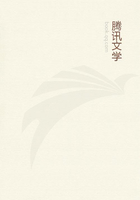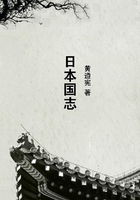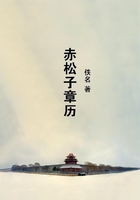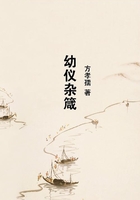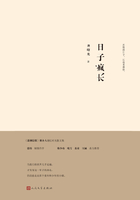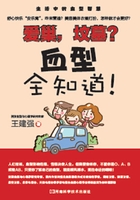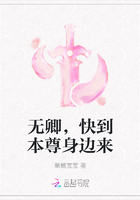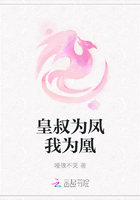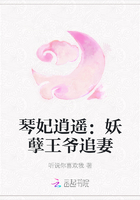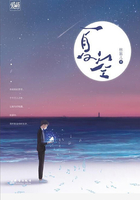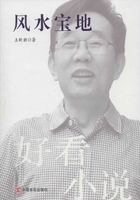"Rummaging among his books he came across Novalis' Ofterdingen [14] the book that had so often inspired him to write poetry a year before. While still at school he and some friends had founded a society by the name of Teutonia with the aim of increasing their understanding of German history and literature. In this society he had assumed the name of Heinrich von Ofterdingen.... Now the meaning of this name became clear to him. He saw himself as that same Heinrich in the charming little town at the foot of the Wartburg and a longing for the 'Blue Flower' took hold of him with overwhelming force. Minna could not be the glorious fairy-tale bloom, nor could she be his bride, however anxiously he probed his heart. Dreaming, he read on and on, the phantastic world of magic enveloped him and he ended by hurling himself weeping into a chair, thinking of the 'Blue Flower'."Gottfried here unveils the whole romantic lie which he had woven around himself; the carnival gift of disguising oneself as other people is his authentic "inner being". Earlier on he had called himself Gottfried von Strasbourg; now he appears as Heinrich von Ofterdingen [14] and he is searching not for the "Blue Flower" but for a woman who will acknowledge his claims to be Heinrich von Ofterdingen. And in the end he really did find the "Blue Flower", a little faded and yellow, in a woman who played the much longed-for comedy in his interest and in her own.
The sham Romanticism, the travesty and the caricature of ancient stories and romances which Gottfried re-lives to make up for the lack of any inner substance of his own, the whole emotional swindle of his vacuous encounters with Mary, Minna and Elise I & II have brought him to the point where he thinks that his experiences are on a par with those of Goethe. Just as Goethe had suddenly rushed off to Italy, there to write his Roman Elegies after undergoing the storms of love, so too Gottfried thinks that his day-dreams of love qualify him for a trip to Rome. Goethe must have had a premonition of Gottfried:
Hat doch der Walfsch seine Laus, Kann ich auch meine haben.
[And if the whale has his lice I can have them too] [15] "Italy, October 1837 -- March 1838"The trip to Rome opens in Gottfried's diary with a lengthy account of the journey from Bonn to Coblenz. This new epoch begins as the previous one had concluded, namely with a narrative richly embellished by allusions to the experiences of others. While on the steamer Gottfried recalls the "splendid passage in Hoffmann" where he "made Master Johannes Wacht produce a highly artistic work immediately after enduring the most overwhelming grief". As a confirmation of the "splendid passage" Gottfried follows up his "overwhelming grief" about Minna by "meditating" about a "tragedy he had long since intended to write" (p. 140).
During Kinkel's journey from Coblenz to Rome the following events take place:
"The friendly letters he frequently receives from his fiancee and which he answers for the most part on the spot, dispel his gloomy thoughts" (p.
144).
"His love for the beautiful Elise II struck root deeply in the youth's yearning bosom" (p. 146).
In Rome we find:
"On his arrival in Rome Kinkel had found a letter from his fiancee awaiting him which further intensified his love for her and caused the image of Minna to fade even more into the background. His heart assured him that Elise could make him happy and he gave himself up to this feeling with the purest passion.... Only now did he realize what love is" (p. 151).
We see that Minna whom he only loved out of pity has re-entered the emotional scene. In his relationship with Elise his dream is that she will make him happy, not he her. And yet in his "Blue Flower" fantasy he had already said that the fairy-tale blossom which had given him such a poetic itch could be neither Elise nor Minna. His newly aroused feelings for these two girls now serve as part of the mis-en-scène for a new conflict.
"Kinkel's poetry seemed to be slumbering in Italy" (p. 151).
Why?
"Because he lacked form" (p. 152).
We learn later that a six-month stay in Italy enabled him to bring the "form" back to Germany well wrapped up. As Goethe had written his Elegies in Rome so Kinkel too meditated on an elegy called "The Awakening of Rome " (p. 153).
Kinkel's maid brings him a letter from his fiancee. He opens it joyfully -- "and sank back on his bed with a cry. Elise announced that a wealthy man, a Dr. D. with an extensive practice and even a riding horse had asked for her hand in marriage. As it would probably be a long time before he, Kinkel, an indigent theologian, would have a permanent position she asked him to release her from the bonds that tied her to him".
A scene taken over lock, stock and barrel from [Kotzebue's] Misanthropy and Remorse . [16]
Gottfried "annihilated", "foul putrefaction", "dry eyed", "thirst for revenge", "dagger", "the bosom of his rival", "heart-blood of his enemy", "cold as ice", "maddening pain", etc. (p. 156 and 157).
The element in these "Sorrows end Joys of a poor Theologian" that gives most pain to our unhappy student is the thought that she had "spurned him for the sake of the uncertain possession of earthly goods" (p. 157).
Having been moved by the relevant theatrical feelings he finally rises to the following consolation:
"She was unworthy of you -- and you still possess the pinions of genius that will bear you aloft high above this dark misery! And when one day your fame encircles the globe the false woman will find a judge in her own heart! -- Who knows, perhaps one day in the years to come her children will seek me out to implore my aid and I would not wish to miss that" (p. 157).

